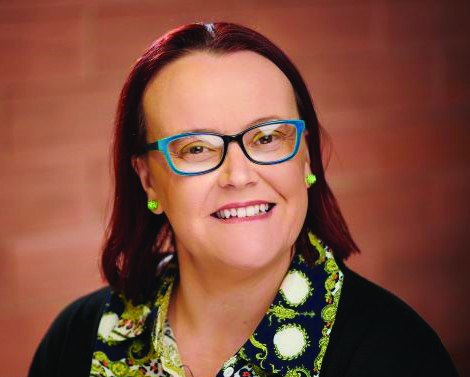Regardless of age range or degree specialism, across all facets of education and teaching, students are encouraged to develop themselves as reflective practitioners. A term that echoes throughout all years of study and in every taught module, a reflective practitioner refers to someone who is able to reflect on their experiences – in either a school setting or a university lecture – and identify what they have learned, and their thoughts on this new found knowledge.
As a way to encourage our Early Years Education students to develop their inner Reflective Practitioner, senior lecturer Alicia Blanco-Bayo has established an Early Years blog, hosted on the Edge Hill website and open to any current Early Years student who wishes to publish their own personal reflections.
“The idea for a blog initially came from a discussion between the Head of Early Years Education and I, who wanted to give a real voice to the Early Years Education students as trainee practitioners. I took this idea and shaped the blog into a space that students felt comfortable and confident to exchange perspectives and share their reflections in an informal way. What I didn’t want was for this to be just another space for academics to write articles – this should be a space for students to express their thoughts without fear of not sounding academic enough.
For me, as a lecturer, it’s very important that I can connect with my students on both a personal and academic level. One of the best ways to do this is to welcome students into academic spaces, allowing them the freedom to work on their own reflection. I wrote the very first blog post and shared it with my students, encouraging them to have a go at writing a post about a topic that they are passionate about.
I hope that students who have read the blog and engaged with the reflections of their peers feel inspired and encouraged to have a go. I often hear from those who have read the blog, that when they hear something explained from the perspective of their peers, they ‘just get it’. That, to me, is what the blog is all about.”

Not only is the blog an open space for our students to develop their writing skills and reflect on their learning experiences, it also exists to share this learning between peers. All our Early Years Education students are actively encouraged to read new blog posts, as they are designed to inspire those who are passionate about the Early Years. Reading the experiences and thoughts of a fellow student may well spark an idea for a research project or lesson plan.
To get a flavour for the reflective pieces our current students have written, we have taken snippets from some recent blog posts.
In Mary’s recent blog post, she reflects on her own experiences as a key worker – and the unique perspective an Early Years key worker has during the COVID-19 lockdown. Early Years Education approaches focus on playing and socialising with their peers – so what happens when you are advised to tell them to do the opposite?
“To stop children from playing games with each other goes against my principles as an Early Years practitioner, as I usually champion the fact that young children learn best through play. I feel that isolating children in this way and reminding them every 2 minutes that they must not touch one another, though necessary to stop the spread of infection, may have negative effects on children’s developing sense of self, issues around trust, and interpretation of social norms.”
– ‘A key worker’s perspective on lockdown Early Years education approaches’
Mary Warsop
BA (Hons) Early Years Practice
Elle wrote her blog post about her own reflections of working with children outdoors in nature, and how today’s emphasis on modern technology may be reducing the amount of time children spend in their natural environment.
“Over the years I have spent a lot of time working abroad in places such as Malaysia looking after children as a Kid’s Club representative. I have been able to see families coming together, children playing outside, running around and exploring both jungle and ocean. This is something so often lost to the industrialised world as our children become increasingly surrounded by technology. Whilst there are many benefits to this technology, are our younger generations playing outside like we used to do?”
– ‘Working and Teaching in the Early Years’
Elle Gentle
BA (Hons) Working and Teaching in the Early Years

Final year student Elisa used her blog post to reflect on the mental health of children in the Early Years, and how more emphasis on supporting mental health from early in a child’s life is crucial.
“Often people think about teenagers and adults when poor mental health is discussed, however, it is essential to understand how poor mental health can impact children from the early years of life. The National Health Service (2017) highlighted that child mental health is continually rising and reported that 5.5% of children between the age of two and four experienced a mental disorder. This raises questions as to why mental health is not discussed more in primary schools and early childcare settings if it is a growing concern.”
– ‘Supporting Children to be Mentally Healthy’
Elisa Fellone-Scott
BA (Hons) Early Years Education with QTS
The blog will continue to grow and develop, as Alicia Blanco-Bayo shares:
“We have plans in the pipeline for some of our students to help manage the blog – coming up with ideas and topics that students can address in their posts, and even hosting Q&As with their peers and Early Years Education professionals. We are proud of what we have achieved in a short space of time, and I am excited to welcome new writers to the blog.”
July 6, 2022


